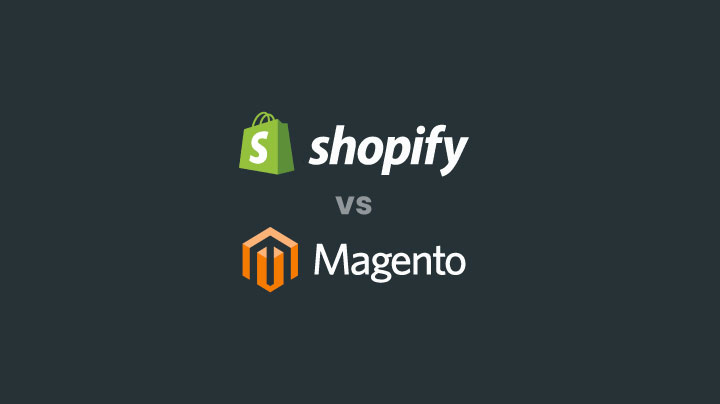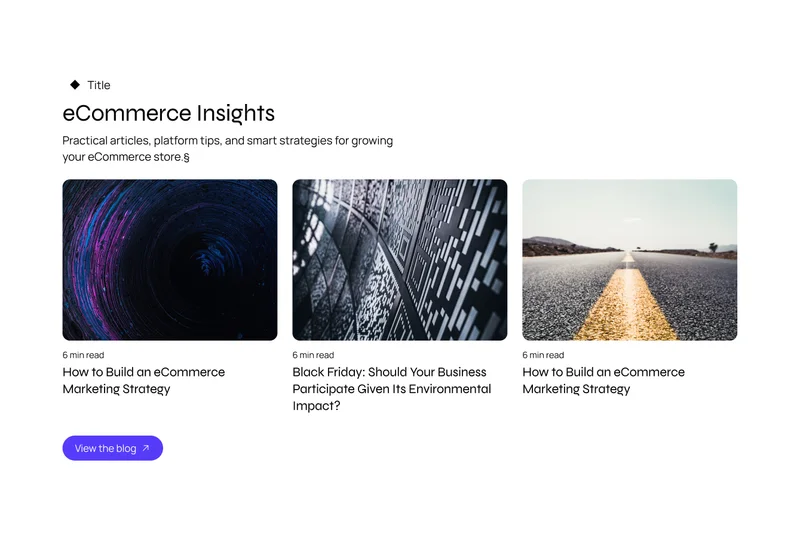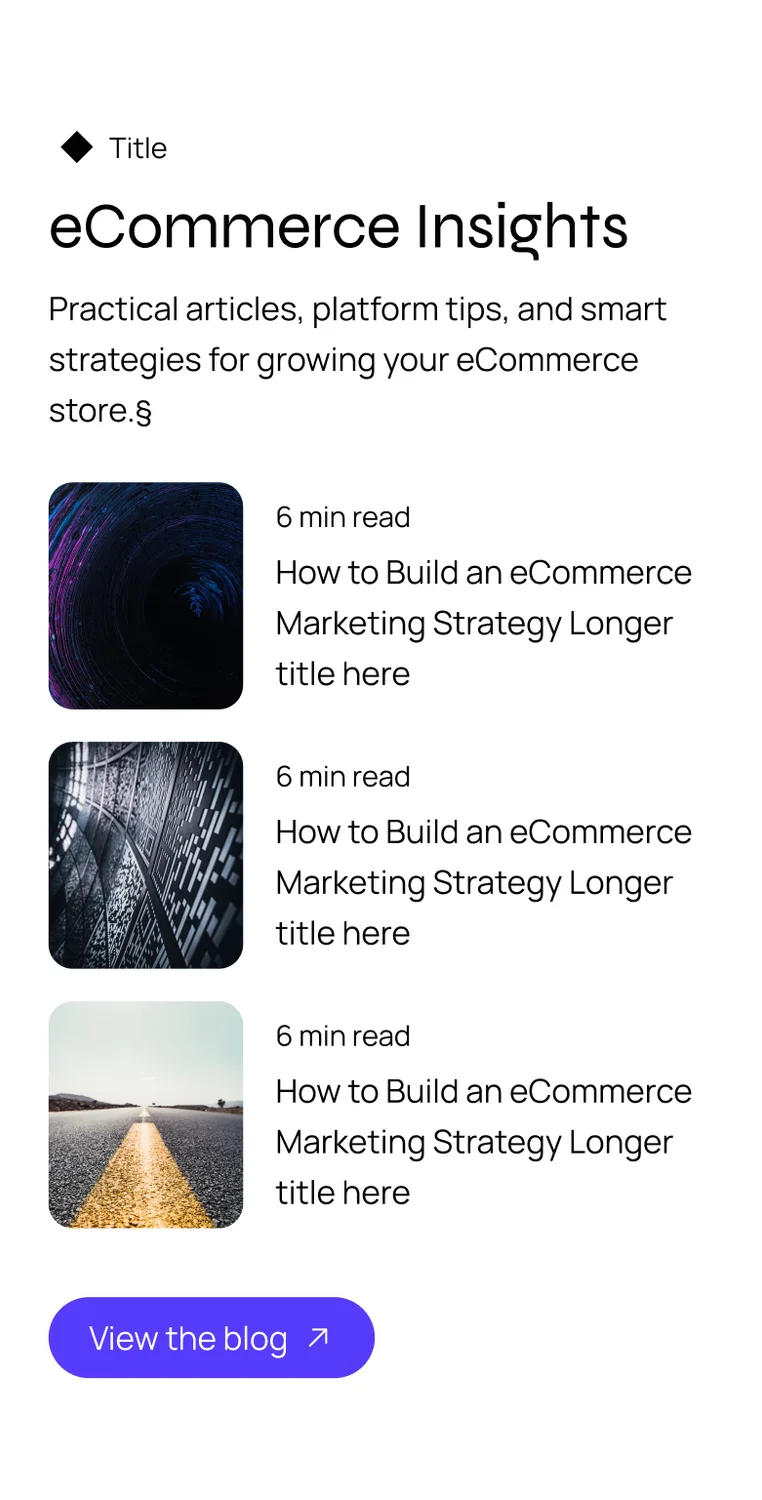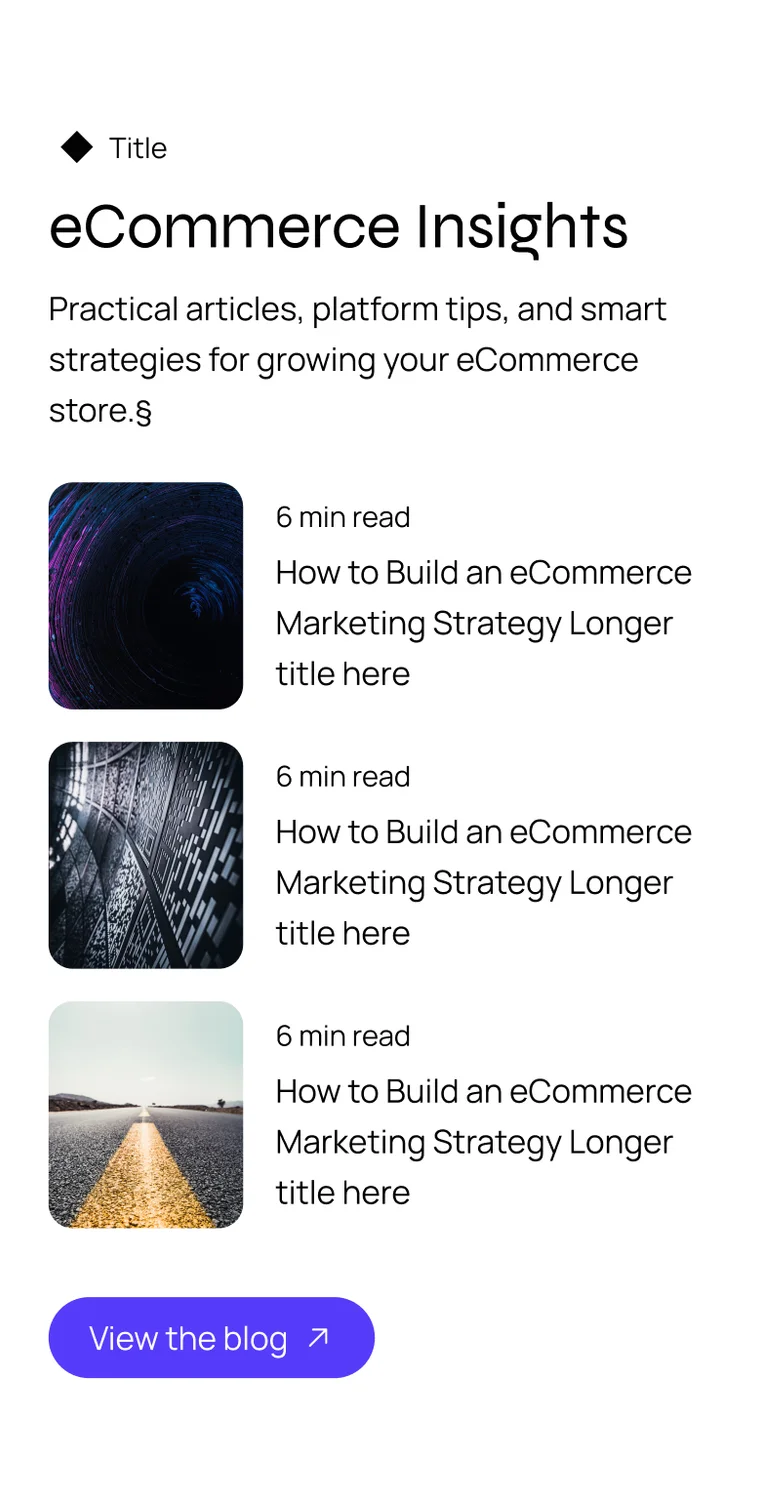June 19, 2024
If you’re looking to start an eCommerce business, or considering switching your existing solution, you’ll find a plethora of options to choose from. Magento and Shopify are two of the most popular eCommerce platforms, each with a number of impressive features, but it’s essential to consider their differences and suitability for your business before making any decisions.
In this article, we look at the features, benefits, and limitations of each to help you choose between Magento vs Shopify. We’ve taken the information from features lists for Magento and for Shopify combined with our own professional experience and what has been important to our clients. If you’re in a hurry, the table below can give you a quick overview:
Shopify vs Magento Comparison at a Glance
What is Magento?
Magento is a highly popular open-source content management system designed for eCommerce. Renowned for its unlimited customisation options and scalability, Magento allows businesses to create versatile and robust online stores. With an impressive feature set that includes advanced inventory management, comprehensive product catalogues, and seamless integrations, Magento supports a wide range of extensions and themes. This makes it a preferred choice for businesses seeking a highly adaptable and feature-rich platform. Get a deeper explanation on our post What is Magento eCommerce?
What is Shopify?
Shopify is a SAAS (software-as-a-service) eCommerce platform intended to streamline online store management. Recognised for its simplicity and user-friendly interface, Shopify enables new and small businesses to get set up quickly and create sleek websites with minimal technical expertise. Offering an array of built-in features such as hosting, inventory management, and support for multiple payment gateways, Shopify serves as a useful solution for businesses that don’t require extensive customisation, but may be too simple for some. You can read more in our post: What is Shopify? Our Honest Review.
Magento vs Shopify Key Considerations
Initial Costs
Magento Open Source (previously known as the Community Edition) is free and is suitable for a wide range of starting and growing businesses. Adobe Commerce (aka Magento Enterprise) is packed with powerful additional features aimed at large corporations starts at around $22,000 (which converts to around £17,000) and total set-up fees will depend on the needs of your business.
Shopify has three subscription-based plans (pricing correct as of June 2024):
Basic: From £19 per month. Shopify identifies this plan as “Best for solo entrepreneurs”.
Shopify: From £49 per month which they highlight as “Best for small teams”.
Advanced: From £259 per month which is “Best for scaling businesses that require advanced reporting”.
Plus: From $2,300 per month (converts to £1,800), “For more complex businesses”
Getting Set Up
Hosting
A Shopify site is fully hosted as part of the subscription, but you’re limited to Shopify’s own setup. You need to organise your own hosting for Magento. Although this is an additional cost, it means businesses can choose hosting tailored to their needs and it can be perfectly cost effective. Secure, robust hosting is essential for successful eCommerce.
Themes
The look and feel of your website establishes your brand. With both platforms, choosing a base theme is the first step in designing your website. Shopify and Magento have plenty of options, but Magento has a library of thousands to choose from, while Shopify has hundreds.
Both offer ‘premium’ themes, with pricing starting at $80 for Shopify and just $1 for Magento.
However, Shopify themes don’t allow much customisation, due to the way they are coded. Brands can only change basics like font, colour and imagery. This may be suitable for new and small businesses but would be limiting for larger brands.
Magento is open source, which means the potential for customisation is huge if you have Magento developer help. Even if you don’t, Magento 2 has a drag-and-drop visual editor which allows non-coders to build and customise their site.
Usability
Shopify’s main draw is its ease of use; it’s beginner-friendly and easy to get set up quickly. Some settings require more technical knowledge but overall, the platform is intuitive and centralises everything including marketing, and inventory management into the dashboard.
There’s a steep learning curve when it comes to Magento due to being so feature-rich and heavily customisable. Managing inventory, orders, and content is relatively straightforward, but if you want to make structural changes or add new features to your site you typically would need specialist Magento development expertise, or enlist the help of a Magento agency (the most common solution).
Payments Gateways
Magento and Shopify both allow you to use a wide range of payment gateways in your checkout. With Shopify, you are charged a transaction fee if you use any gateway other than ‘Shopify Payments’. Magento doesn’t charge a transaction fee but gateway providers usually charge their own transaction fees as agreed by the store owner and payment provider.
For example, based on a £100 purchase:
Shopify using Shopify Payments = 2% + 25p fee (£2.25)
Shopify using Mollie = 1.2% + 20p fee + 2% Shopify third-party provider fee (£3.40)
Magento using Mollie = 1.2% + 20p fee
Shopify vs Magento in Summary
Ultimately, when we look at Magento vs Shopify, they’re both powerful eCommerce platforms suited to different types of business.
Shopify is ideal for businesses who are looking to get set up as quickly as possible but the one-size-fits-all approach means customisation is sometimes limited and transaction fees apply to any payment gateway other than Shopify’s own.
Magento is ideal for businesses looking for a feature-rich eCommerce platform and is suited to those who want flexibility and the ability to scale alongside their evolving business.
If you’re looking for further advice on the best choices for your eCommerce web development, get in touch today and one of our friendly team will help.
Last updated: March 10, 2025






